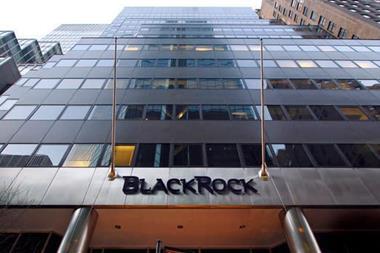BlackRock has joined investor engagement initiative Climate Action 100+, with reactions to the heavily scrutinised asset manager’s move conveying different interpretations of what the impact might be.
BlackRock has frequently been accused of not bringing enough pressure to bear on companies in relation to climate change, with the criticism often aimed at its shareholder voting.
A spokesperson for the $6.8trn (€6.1trn) asset manager said joining Climate Action 100+ was “a natural progression of the work our investment stewardship team has done to date.”
“We believe evidence of the impact of climate risk on investment portfolios is building rapidly and we are accelerating our engagement with companies on this critical issue.”
Emily Chew, global head of ESG research and integration at Manulife Investment Management and current chair of the Climate Action 100+ steering committee, said BlackRock was one of the most influential asset managers in the world and its coming on board “will bring even more heft” to investor engagement through the initiative.
Launched in 2017, Climate Action 100+ is the world’s largest investor group working on climate change, counting more than 370 investors with more than $41trn in assets under management.
Signatories commit to engage with companies to get them to take action to reduce greenhouse gas emissions “across the value chain”, implement a strong governance framework, and report in line with the recommendations of the Task Force on Climate-related Financial Disclosures.
Stephanie Pfeifer, member of the initiative’s steering committee and CEO of the Institutional Investors Group on Climate Change, said: “With the world’s largest asset manager now joining Climate Action 100+, company boards should be under no illusion of the need to take action on climate change and reduce their emissions.”
‘Not meaningful unless …’
Others struck a more downbeat tone.
Jérome Tagger, newly appointed CEO of Preventable Surprises, a think tank focussed on systemic environmental, social and governance risks, said BlackRock joining Climate Action 100+ was a “long overdue small step given the scale and urgency of the climate crisis”.
It won’t be meaningful unless supported by a vastly improved proxy voting on climate disclosure and forceful collaborative stewardship
Jérome Tagger, CEO of Preventable Surprises
“It won’t be meaningful unless supported by a vastly improved proxy voting on climate disclosure and forceful collaborative stewardship,” he said. “We shouldn’t forget the many other global institutional managers such as Vanguard, State Street, Wellington, T Rowe Price or Nuveen who have yet to join the effort.”
According to a report from ShareAction, a responsible investment campaign organisation, US fund managers block climate votes, with the 10 investors that are least supportive of voting for climate action all based in the US, with European investors more prepared to vote against management.
BlackRock was identified as the third worst performer overall (6.7% of votes in favour of selected resolutions). ShareAction also noted that some members of Climate Action 100+ were not voting against management at some of their focus companies.
Eli Kasargod-Staub, executive director of Majority Action, a non-profit shareholder advocacy organisation, said that in joining Climate Action 100+, BlackRock was “finally recognising that its go-it-alone approach has been counterproductive”.
However, he called on CEO Larry Fink to commit the asset manager “to using their voting power to hold directors accountable at corporations that fail to align themselves to the goal of holding warming to 1.5°C”.
Late last year InfluenceMap, a think tank, published analysis of large asset managers’ corporate engagement activity with respect to climate change and said only few were “strongly and consistently” engaging with companies about aligning their business models to meet the goals of the Paris Agreement, with BlackRock one of the laggards.
‘Could help BlackRock shift’
Thomas O’Neill, research director of InfluenceMap, said joining CA100+ was “a positive step that could help BlackRock shift towards a position where it is willing to change the business models and lobbying activities of companies”.
BlackRock has previously responded to criticism of its voting by saying that stewardship was about more than voting, and that it has engaged with many more companies on climate risk than the number of shareholder proposals that came to the vote.
It has also said it was willing to be patient with companies when its engagement “affirms they are working to address our concerns”. Where it did not see progress through engagement, it would generally express its concern by voting against directors or abstaining.
In its 2019 investment stewardship report, BlackRock said it was often asked to join various multi-stakeholder initiatives, but that it only joined external groups “when we believe that collective action can significantly augment our direct engagements”.
“We try to avoid initiatives that duplicate our own efforts or that may cause confusion for issuers,” it said.
When investors sign up to Climate Action 100+ they nominate which companies they would like to engage with and in what capacity – as lead or supporting investor.
There are 161 companies on the initiative’s focus list: 100 “systemically important” emitters of greenhouse gases, and 61 that are considered to have “a significant opportunity to drive the clean energy transition”.
Equinor, Glencore and Shell are among companies investors have engaged as part of Climate Action 100+. Shell, for example, committed to setting short-term climate targets and link them to executive pay following engagement with the Climate Action 100+ investors.











